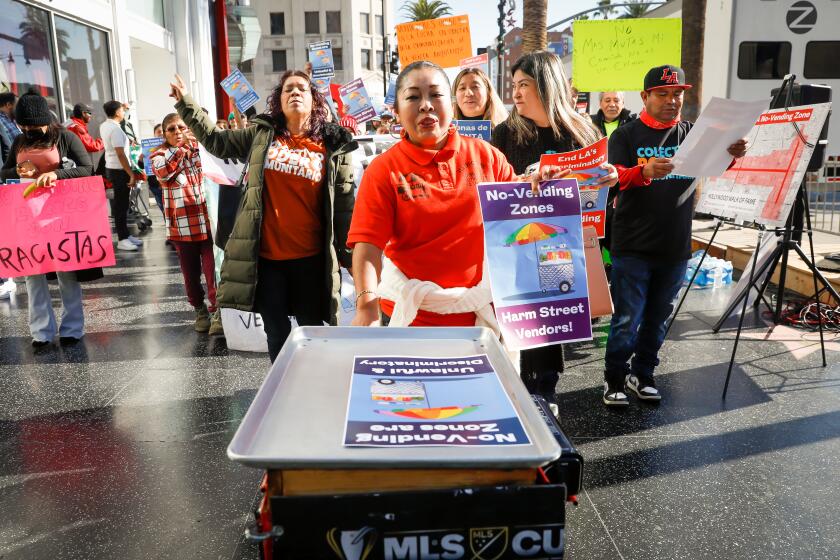Everybody Into the Insurance Pool
By 2010, employers will not pay for health insurance for nearly half of California’s working adults, according to a new UC Berkeley study. Faced with skyrocketing premiums, companies are simply cutting off health insurance as a benefit.
Once the employer steps out of the picture, you can try to fit in elsewhere to obtain group coverage. But the groups you can join -- a professional organization like the state bar, for instance -- are scarce.
If you try to buy an individual policy, when you can find one, the coverage often is less and the cost is high. For instance, Costco recently announced a pilot program to sell health insurance to certain customers. The warehouse giant is merely serving as an agent selling individual policies. Although its premiums may be a little lower than buying a policy on your own, the deductibles will still be high and there’s no guarantee you’ll be sold a policy.
The few rules of fairness in the market don’t apply to individuals who buy insurance alone, only to groups of policyholders traditionally organized by employers and professional organizations.
An individual seeking insurance can be denied a policy for any medical reason. If you are overweight, or in therapy, or your kid takes Ritalin, chances are insurers won’t sell you a policy. If you sign up through an employer or another professional group, however, coverage is guaranteed. So is the price of the policy.
For policyholders in a group, insurers standardize how much they charge based on non-medical criteria such as age, gender or ZIP Code. (Many large corporations are selfinsured and operate under another set of rules.) If an insurer raises premiums for a group in one company, it has to do so for every group similarly composed in the state. This prevents discrimination against groups with high-cost patients. For a person on his own, though, an insurer can raise premiums at will with only 30 days’ notice, once the policy is up for renewal -- and most of these are six-month policies. This allows a health insurer to price the sickest patients out of their programs.
The only protection afforded to individuals seeking health coverage on their own is that insurers must sell them a policy if they had a previous policy and it hasn’t lapsed. The policy offered in such situations, however, is almost always a high-cost, high-deductible one. In one example from Blue Cross, an Angeleno age 45 to 49 must pay $506 per month for an individual policy with a $5,000 deductible.
Insurers understand that patients going it alone have little bargaining power. The industry wants to have the latitude to cherry pick the healthiest patients, to not have to offer policies to sicker patients, and to be able to get rid of individuals when they get sick. The role of government, however, should be to ensure that all patients have access to affordable coverage and to require insurers to keep the sick as well as the healthy on their rolls.
If government doesn’t do this, taxpayers will wind up picking up the tab for patients who become sick enough to qualify for Medicaid. The UC Berkeley study predicts that by 2010 there will be 1.5 million more uninsured Californians, and 880,000 more will have to be enrolled in a taxpayer-funded program. What we need is for state government to create its own group policy, one that includes healthy and sick patients, open to all residents.
John Kerry recommended during his presidential campaign that all Americans have access to the federal employees’ health-benefit plan so they could avail themselves of the federal government’s purchasing power. So why not give all Californians access to the policies that state employees and retirees receive through the California Public Employee Retirement System? Insurers selling individual policies would then have to compete with this state option.
Democrats tend to favor mandating that employers pay for insurance. Republicans typically want to give insurers more latitude to “innovate.” Unless a middle ground is found, the ranks of the 7 million uninsured in California will rise.
More to Read
Inside the business of entertainment
The Wide Shot brings you news, analysis and insights on everything from streaming wars to production — and what it all means for the future.
You may occasionally receive promotional content from the Los Angeles Times.










